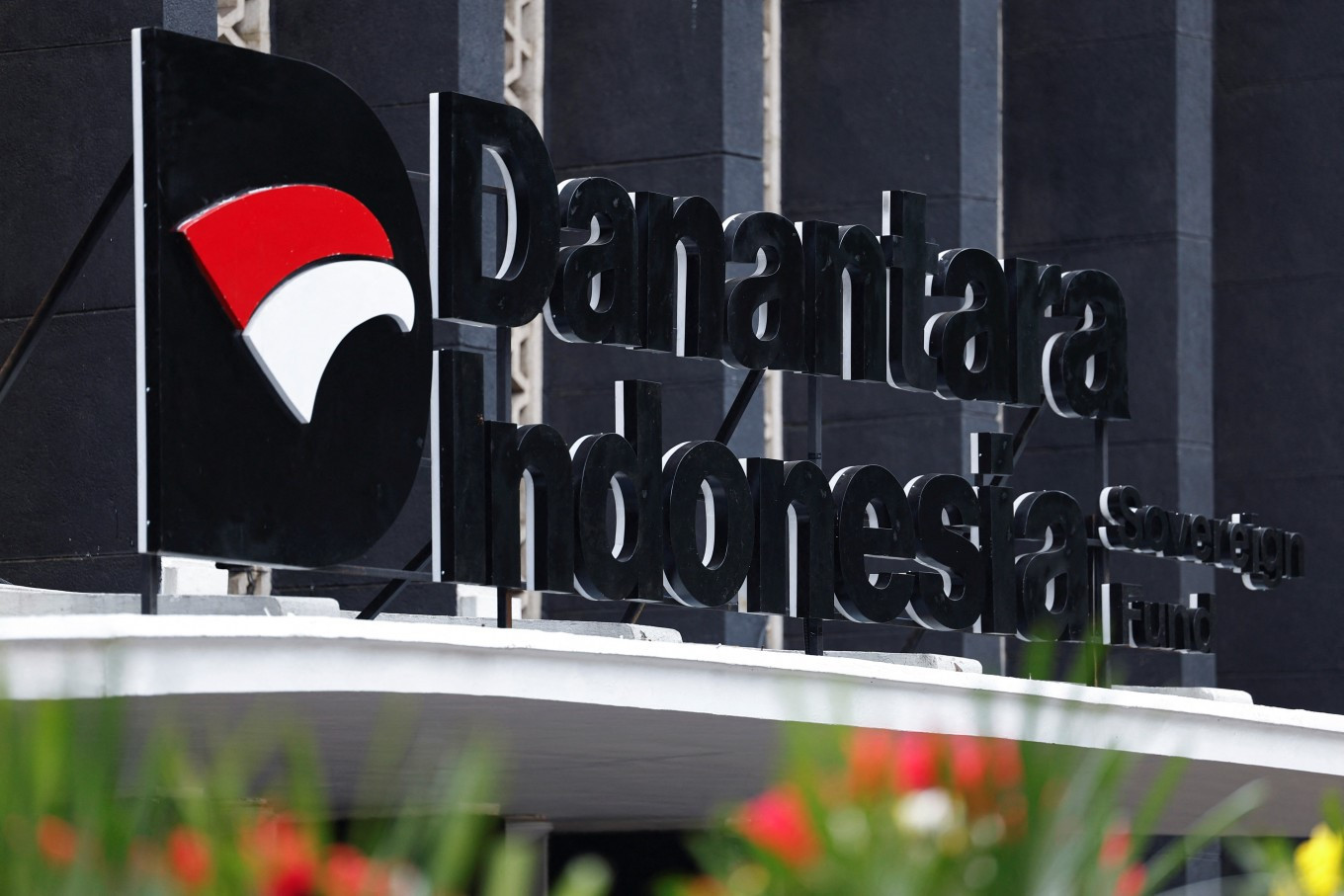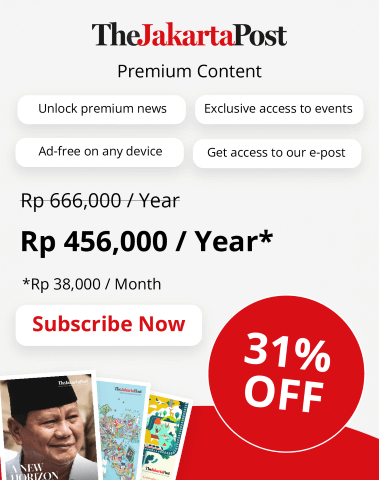News
$2 billion Qatar fund puts Danantara on the spot, expectations soar
Tenggara Strategics April 24, 2025 A sign for sovereign wealth fund Danantara Indonesia is seen in front of its headquarters in Jakarta on Feb. 28, 2025. (Reuters/Willy Kurniawan)
A sign for sovereign wealth fund Danantara Indonesia is seen in front of its headquarters in Jakarta on Feb. 28, 2025. (Reuters/Willy Kurniawan)
Indonesia and Qatar have launched a US$4 billion joint investment fund, co-managed by Indonesia’s Danantara investment agency and the Qatar Investment Authority (QIA), marking a major milestone in President Prabowo Subianto ’s Middle East diplomacy. While the agreement signals strong international confidence in Indonesia’s economic prospects, it also raises mounting expectations for Danantara to provide liquidity for domestic projects despite lingering concerns over its financial capacity.
The announcement was made during President Prabowo’s official visit to Doha on April 13, following a bilateral meeting with Emir Sheikh Tamim bin Hamad Al-Thani at the Amiri Diwan Palace. Under the agreement, Qatar will contribute $2 billion, matched by Danantara, bringing the total fund size to $4 billion.
Danantara CEO and Investment and Downstream Minister Rosan Roeslani stated that the fund would target long-term strategic sectors, including downstream industries, healthcare, renewable energy, technology and other high-impact initiatives. The aim, he said, is to accelerate Indonesia’s economic transformation and draw more global capital into national development.
The fund’s announcement has fueled expectations from various sectors hoping to secure financing. Public Housing and Settlement Minister Maruarar “Ara” Sirait expressed optimism that Danantara could support President Prabowo’s flagship program to build three million homes annually. Although Ara suggested that Qatar’s capital might be allocated for housing, he acknowledged that final decisions would depend on Danantara’s internal evaluations.
Ara’s remarks underscore the growing political significance of Danantara as a key financial vehicle for the administration’s signature programs. Pressure is mounting ahead of a projected Rp 59.11 trillion (US$3.69 billion) dividend transfer from state-owned banks by the end of April, with many anticipating that Danantara will rechannel these funds into national development efforts.
Energy and Mineral Resources Minister Bahlil Lahadalia has urged Danantara to allocate part of its capital to support Indonesia’s downstream resource agenda. Meanwhile, regional leaders, including Nusantara Capital Authority chief Basuki Hadimuljono, are lobbying Danantara to fund infrastructure projects that have been left in limbo following substantial government budget cuts.
At the same time, Coordinating Economic Minister Airlangga Hartarto has proposed a plan to the White House in response to retaliatory tariffs introduced by United States President Donald Trump. The plan envisions Danantara encouraging state-owned enterprises (SOEs) to invest in the US, particularly in the oil and gas sector, with Pertamina expected to take a leading role.
Despite the enthusiasm, serious questions remain about Danantara’s financial strength. Although its projected asset base of $900 billion appears formidable, much of it consists of illiquid state equity. In practical terms, dividends from SOEs remain Danantara’s main source of liquid assets, yet these are relatively limited. Between 2020 and 2024, the government received just Rp 26.7 trillion in net dividends, after subtracting Rp 277.2 trillion in capital injections from the total Rp 303.9 trillion in gross dividends.
Economists also warn of vulnerabilities on Danantara’s balance sheet. Several SOEs under its portfolio continue to struggle financially, including debt-laden construction firms, loss-making pharmaceutical companies and national carrier Garuda Indonesia, which remains in distress. With global economic headwinds and heightened protectionism triggered by the US tariff regime, Danantara may be called upon to cover operational losses, thereby diverting it from its core investment mandate.
Adding to the pressure, Danantara is expected to play a stabilizing role in domestic capital markets. Chief investment officer Pandu Sjahrir confirmed that the fund plans to allocate part of its April dividend inflow to Indonesian equities, in a bid to boost liquidity and calm investor nerves.
In times of tightened government spending, which are exacerbated by budget shifts toward priority programs like free nutritious meals, there is no shortage of sectors hoping that any new funds Danantara receives, including the Qatari investment, will flow in their direction.
Still, while the Qatar deal carries symbolic and diplomatic weight, it is not a blank check. Disbursements will be governed by strict investment criteria jointly defined by Danantara and QIA. Only projects that demonstrate strong commercial viability, long-term strategic value and alignment with national priorities will qualify.
As expectations soar, the spotlight is now squarely on Danantara. The investment agency must prove that it is not just a symbolic institution, but is capable of sound governance, evidence-based investment decisions and delivering tangible returns for both Indonesia and its international partners.

